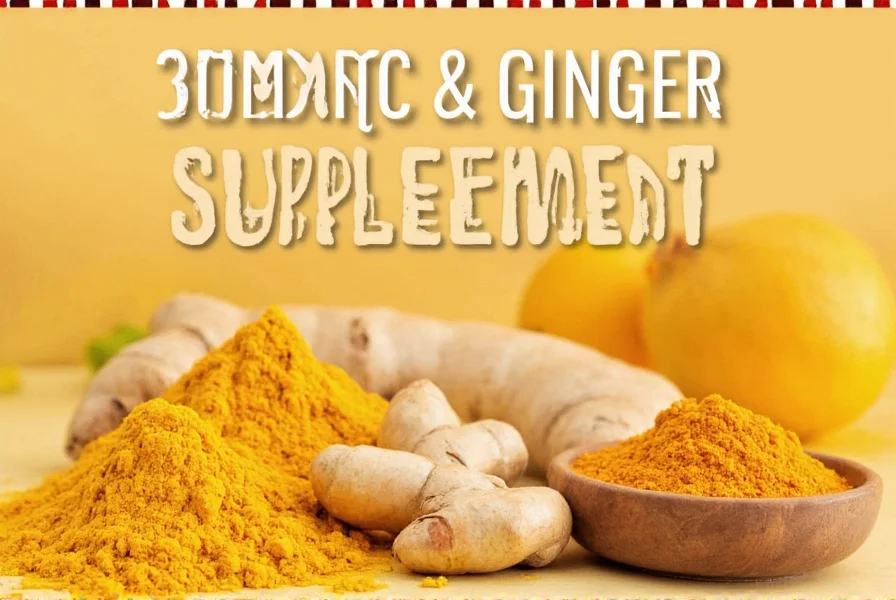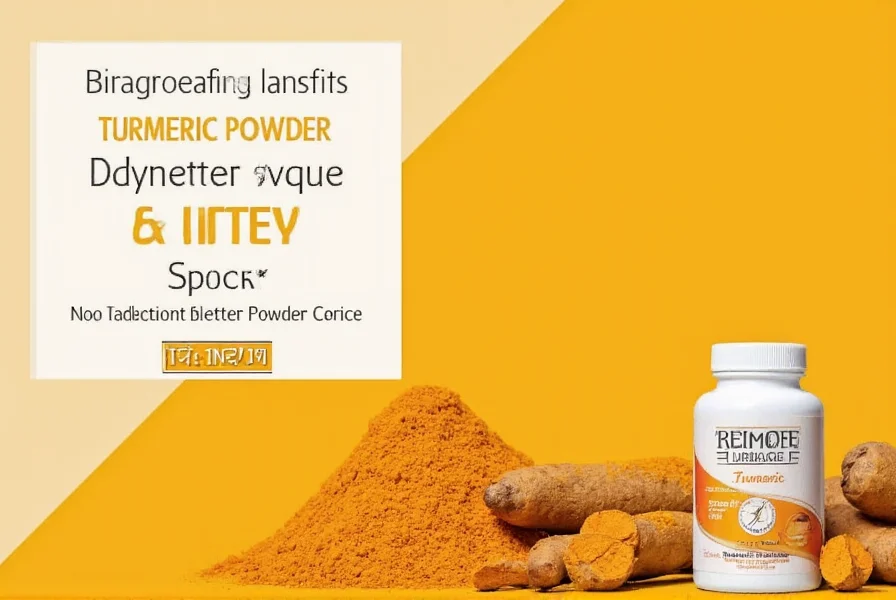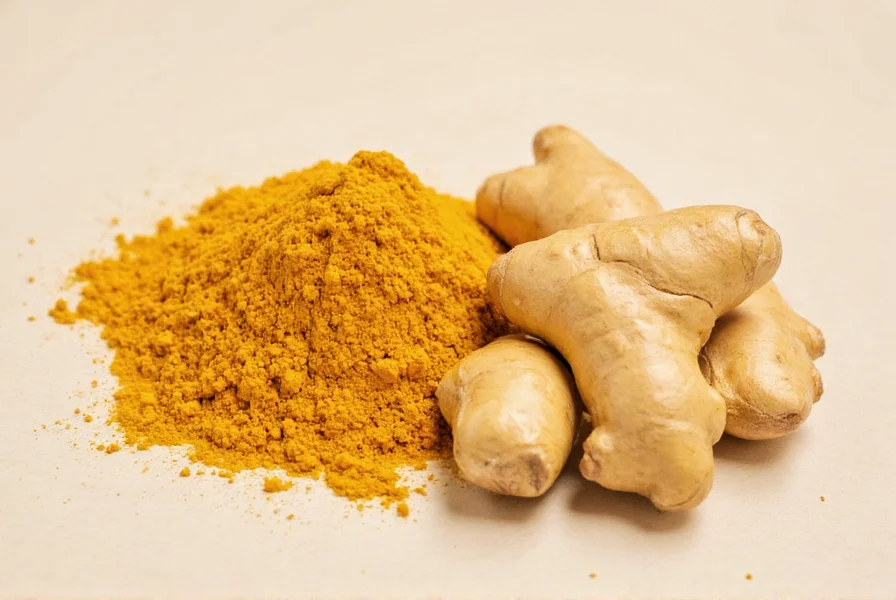For centuries, turmeric and ginger have been staples in traditional medicine systems across Asia. Today, modern science is increasingly validating many of these traditional uses, particularly for their potent anti-inflammatory properties. As natural remedies gain popularity, understanding the evidence behind turmeric and ginger supplements for inflammation becomes essential for making informed health decisions.
The Science Behind Turmeric and Curcumin
Turmeric's primary active compound, curcumin, is responsible for most of its health benefits. However, curcumin has notoriously poor bioavailability on its own. Research shows that when combined with piperine (found in black pepper), absorption increases by up to 2,000%. This explains why the best turmeric supplement with black pepper formulation includes this critical combination.
Multiple clinical studies have demonstrated curcumin's effectiveness in reducing inflammatory markers. A 2016 review published in the Journal of Medicinal Food concluded that curcumin supplementation significantly reduced pain and improved function in people with osteoarthritis. The anti-inflammatory effects appear comparable to some non-steroidal anti-inflammatory drugs (NSAIDs), but without the same risk of gastrointestinal complications.

Ginger's Active Compounds and Research
Ginger contains gingerols and shogaols, compounds with powerful anti-inflammatory and antioxidant properties. Unlike turmeric, ginger has better natural bioavailability, though standardized extracts provide more consistent dosing.
Research on ginger's effectiveness for nausea is particularly strong. A comprehensive review in the American Journal of Obstetrics and Gynecology found ginger significantly reduced pregnancy-related nausea. Studies also show promise for ginger in reducing muscle pain after exercise and managing symptoms of osteoarthritis.
Synergistic Effects of Combined Turmeric and Ginger Supplements
When taken together, turmeric and ginger create a powerful anti-inflammatory combination. Their complementary mechanisms of action target different inflammatory pathways, potentially creating enhanced benefits. This explains growing interest in turmeric and ginger supplements for joint pain management.
A 2020 study in Phytotherapy Research examined the combined effects of curcumin and ginger on knee osteoarthritis. Participants receiving both supplements showed significantly greater improvement in pain scores and physical function compared to those taking either supplement alone or placebo.
Evidence-Based Health Benefits
Based on current research, turmeric and ginger supplements may provide these evidence-supported benefits:
| Health Benefit | Scientific Support | Recommended Dosage |
|---|---|---|
| Inflammation reduction | Strong (multiple RCTs) | Curcumin: 500mg 2x/day with piperine; Ginger: 1000-2000mg/day |
| Joint pain relief | Moderate to strong | Curcumin: 500mg 2x/day; Ginger: 500-1000mg 2x/day |
| Digestive support | Moderate | Ginger: 500-1000mg before meals |
| Post-exercise recovery | Moderate | Ginger: 2000mg/day for 3 days before exercise |
Safety Profile and Potential Side Effects
While generally well-tolerated, side effects of turmeric and ginger supplements can include:
- Mild digestive upset (nausea, diarrhea, or acid reflux)
- Increased bleeding risk when combined with blood thinners
- Potential interactions with diabetes medications
- Rare allergic reactions
People with gallbladder issues should avoid high-dose turmeric, as it may stimulate bile production. Those scheduled for surgery should discontinue both supplements at least two weeks beforehand due to potential bleeding risks.
Choosing Quality Supplements
Not all supplements deliver what they promise. When selecting products, look for:
- Third-party testing seals (USP, NSF, ConsumerLab)
- Curcumin formulations with enhanced bioavailability (like BCM-95 or Meriva)
- Standardized ginger extracts containing 5% gingerols
- Transparent labeling of active compound concentrations
Avoid products with excessive fillers or proprietary blends that hide individual ingredient amounts. The scientific evidence for turmeric supplements is strongest when using formulations proven to increase curcumin absorption.

Practical Usage Guidelines
For optimal results with turmeric and ginger dosage for joint pain or other inflammatory conditions:
- Take turmeric supplements with food containing healthy fats to enhance absorption
- Split daily doses (morning and evening) for consistent blood levels
- Allow 4-8 weeks for full effects to manifest
- Consider cycling usage (8 weeks on, 2 weeks off) to maintain effectiveness
Remember that supplements complement, but don't replace, foundational health practices like balanced nutrition, regular exercise, and adequate sleep.
Conclusion
Turmeric and ginger supplements represent promising natural options for managing inflammation and supporting overall wellness. While research continues to evolve, current evidence supports their use for specific conditions, particularly when high-quality formulations are selected. As with any supplement, individual responses vary, and these should be considered part of a comprehensive approach to health rather than standalone solutions. Always discuss new supplements with your healthcare provider, especially if managing chronic conditions or taking medications.
Frequently Asked Questions
How long does it take for turmeric and ginger supplements to work?
Most people notice subtle effects within 2-4 weeks of consistent use, though significant improvements for conditions like joint pain may take 6-8 weeks. Curcumin's effects build gradually as it modulates inflammatory pathways. For acute issues like nausea, ginger may provide relief within 30-60 minutes.
Can I take turmeric and ginger supplements with blood pressure medication?
Ginger may enhance the effects of blood pressure medications, potentially causing levels to drop too low. Turmeric in high doses might also affect blood pressure. If you're taking hypertension medication, consult your doctor before using these supplements and monitor your blood pressure regularly.
What's the difference between turmeric powder and curcumin supplements?
Turmeric powder contains only about 3% curcumin by weight, while supplements provide concentrated curcumin extracts (typically 95% curcumin). You would need to consume approximately 15-20 grams of turmeric powder to equal the curcumin content of a standard 500mg supplement capsule. Supplements also often include absorption enhancers that culinary turmeric lacks.
Are turmeric and ginger supplements safe for long-term use?
Current research suggests both are safe for long-term use at recommended doses. However, periodic breaks (1-2 weeks every 2-3 months) may help maintain effectiveness. Long-term safety data beyond 6-12 months is limited, so discuss extended use with your healthcare provider, especially if you have underlying health conditions.











 浙公网安备
33010002000092号
浙公网安备
33010002000092号 浙B2-20120091-4
浙B2-20120091-4